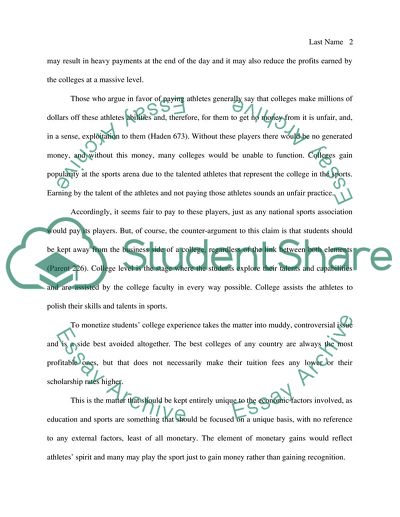Cite this document
(“Should college athletes be paid to play Research Paper”, n.d.)
Retrieved de https://studentshare.org/english/1591875-should-college-athletes-be-paid-to-play
Retrieved de https://studentshare.org/english/1591875-should-college-athletes-be-paid-to-play
(Should College Athletes Be Paid to Play Research Paper)
https://studentshare.org/english/1591875-should-college-athletes-be-paid-to-play.
https://studentshare.org/english/1591875-should-college-athletes-be-paid-to-play.
“Should College Athletes Be Paid to Play Research Paper”, n.d. https://studentshare.org/english/1591875-should-college-athletes-be-paid-to-play.


